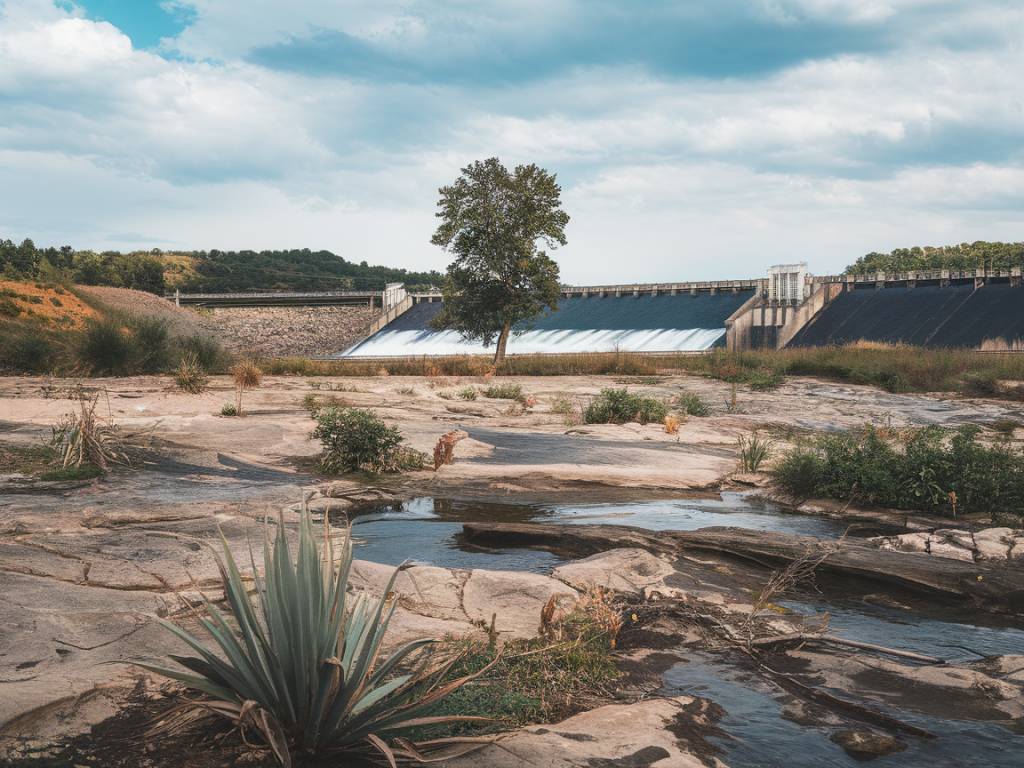As I sit here, sipping from my trusty reusable water bottle, I can’t help but marvel at how something as simple as water has become one of the most contentious issues of our time. Friends, we’re about to dive into a topic that’s as deep and complex as the oceans themselves: the geopolitical battle over freshwater resources. Buckle up, because this journey might leave you feeling a little parched!
The Blue Gold Rush
Remember when we were kids, and our biggest water-related concern was whether we’d get pushed into the pool at a birthday party? Oh, how times have changed! Today, freshwater has become the new oil, a resource so precious that nations are willing to go to great lengths to secure it. And let me tell you, some of these « lengths » make my old engineering projects look like child’s play.
In my travels, I’ve seen firsthand how water scarcity can transform landscapes and lives. Picture this: I’m standing at the edge of what used to be the Aral Sea, once one of the world’s largest lakes. Now? It’s a haunting expanse of sand and abandoned fishing boats. The cause? A textbook example of water mismanagement and the unintended consequences of large-scale irrigation projects.
The Players in This Liquid Drama
So, who are the main actors in this high-stakes water opera? Let’s take a look at some of the key players:
Technology: Our Beacon of Hope?
Now, before we all start hoarding bottled water and building personal desalination plants in our backyards (trust me, I’ve been tempted), let’s talk about some of the incredible technologies that are giving us a fighting chance in this water war.
Desalination is making waves (pun absolutely intended) in water-stressed regions. Countries like Israel have become world leaders in turning seawater into drinking water. It’s not a perfect solution – it’s energy-intensive and can have environmental impacts – but it’s a start.
Smart water management systems are another game-changer. Using IoT sensors and AI, cities can now detect leaks, optimize distribution, and reduce waste. It’s like giving our water infrastructure a brain transplant!
And let’s not forget about water recycling and reuse technologies. Singapore’s NEWater project is a shining example of how treated wastewater can be purified to drinking water standards. It’s a concept that takes some getting used to, but hey, if astronauts can do it in space, why can’t we?
The Human Element
But friends, as much as I love geeking out over the latest water tech (and believe me, I could talk about membrane filtration all day), we can’t forget the human element in all of this. Water wars aren’t just about governments and corporations; they’re about people.
I remember meeting a young girl in a drought-stricken village in sub-Saharan Africa. She spent hours each day walking to fetch water instead of going to school. Her story is repeated millions of times over across the globe. It’s a stark reminder that water scarcity isn’t just a geopolitical issue – it’s a human rights issue.
Diplomacy: The Ultimate Water Treatment?
So, how do we solve this global water puzzle? The answer, I believe, lies in a cocktail of technology, policy, and good old-fashioned diplomacy. We need international cooperation on a scale we’ve never seen before.
Take the Indus Waters Treaty between India and Pakistan. Despite their many differences, these two countries have managed to maintain this water-sharing agreement for over 60 years. It’s not perfect, but it’s a testament to what’s possible when we prioritize cooperation over conflict.
We need more of these agreements, and we need to strengthen the ones we have. The UN Convention on the Law of Non-Navigational Uses of International Watercourses is a step in the right direction, but it needs more teeth and more signatories.
What Can We Do?
Now, I know what you’re thinking. « Paco, this all sounds great, but what can I, a humble water drinker, do about all this? » Well, my friends, I’m glad you asked!
As I wrap up this liquid journey (and reach for another sip from my water bottle), I’m reminded of a saying I once heard: « Thousands have lived without love, not one without water. » It’s a sobering thought, isn’t it?
The water wars of the 21st century are already upon us, but they don’t have to end in conflict. With the right mix of technology, policy, and human compassion, we can turn these potential battlegrounds into opportunities for cooperation and innovation.
So, my fellow water warriors, are you ready to dive in and make a difference? The future of our blue planet depends on it. Now, if you’ll excuse me, I think it’s time I finally fixed that dripping tap in my kitchen. Every drop counts, after all!
